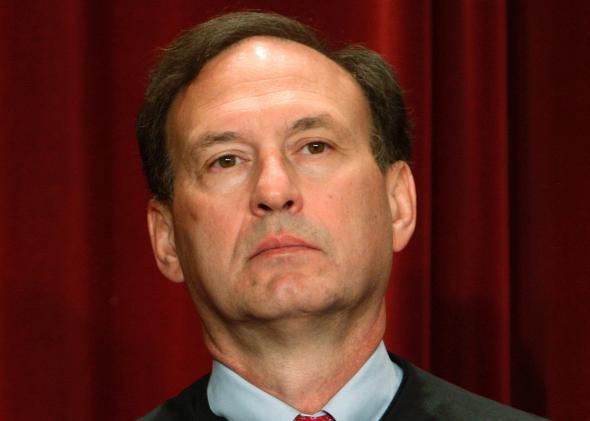 Based on the hysterical conservative response to this move—which suggests that being a Christian at Cal State now resembles being a missionary in a country that bans Christianity—this “de-recognition” is fairly minor. InterVarsity will not be banned from campuses, nor will students be discouraged from joining. The group can preach on campus and distribute evangelical literature. Actually, this “catastrophic” threat to religious liberty will mean only one thing for InterVarsity: No longer will the group be permitted to receive benefits (namely, funding) from the public school system.The catalyst for this latest outcry comes from California, where an evangelical Christian student group called InterVarsity Christian Fellowship was recently “de-recognized” by California State University. Under California law, any student group that receives funds from a public university is forbidden from excluding LGBTQ students. Because InterVarsity insisted on refusing membership to all gay students, Cal State was legally compelled to revoke its recognition as an official student group.
Based on the hysterical conservative response to this move—which suggests that being a Christian at Cal State now resembles being a missionary in a country that bans Christianity—this “de-recognition” is fairly minor. InterVarsity will not be banned from campuses, nor will students be discouraged from joining. The group can preach on campus and distribute evangelical literature. Actually, this “catastrophic” threat to religious liberty will mean only one thing for InterVarsity: No longer will the group be permitted to receive benefits (namely, funding) from the public school system.The catalyst for this latest outcry comes from California, where an evangelical Christian student group called InterVarsity Christian Fellowship was recently “de-recognized” by California State University. Under California law, any student group that receives funds from a public university is forbidden from excluding LGBTQ students. Because InterVarsity insisted on refusing membership to all gay students, Cal State was legally compelled to revoke its recognition as an official student group.
Supporters of the campaign to rebrand anti-gay discrimination as “religious liberty”claim they are merely trying to protect religious people from government interference. This assertion always seemed dubious, given the crusade’s disregard for actual infringements on religious freedom that don’t fit their persecution complex. But its latest battle is even more egregiously hypocritical: Not only do some conservative Christians want a special right to discriminate against gay people; they also want the state to fund that discrimination.
A law that forbids public funds from supporting a club that openly discriminates against gay people might seem like a reasonable compromise: Anti-gay Christian groups can continue to exclude gays, while taxpayers can rest easy knowing their money isn’t supporting discrimination. But in 2010, the Christian Legal Society argued to the U.S. Supreme Court that, in fact, evangelical clubs at public universities have a First Amendment right to discriminate against gays. The justices didn’t buy it, ruling that a policy requiring clubs to accept all interested students—even the gay ones—is “reasonable” and “viewpoint neutral.” Justice Anthony Kennedy wrote separately to emphasize how discrimination policies at universities inhibit “vibrant dialogue.”
Christian clubs like to complain that, if they aren’t allowed to discriminate, allreligious college groups might be overrun by atheists. At oral argument in the Christian Legal Society case, Justice Samuel Alito and his fellow conservatives expanded upon the hostile takeover hypothetical, suggesting that a nondiscrimination policy would allow Islamophobic students to sabotage a Muslim student group:
But these agitated speculations are really too fanciful to take seriously. Not a single religious group at a U.S. university has experienced the kind of takeover that Alito so fears. Quite the contrary: The vast majority of Jewish, Muslim, Catholic, and mainline Protestant groups at universities across the country have happily complied with nondiscrimination policies. Some chapters of Hillel have even elected non-Jewish students to the board—and contrary to Alito’s fears, none of these gentiles have yet to sneak pork into the latkes at a Hillel Hanukkah party.
The truth, of course, is that all these thought experiments are just a distraction. There’s only one issue truly in play here: whether anti-gay student groups can force public universities to subsidize their discriminatory behavior. The answer today is the same one the Supreme Court gave in 2010: Absolutely not. Advocates of religious liberty profess to support freedom of religion from government interference. But groups like InterVarsity aren’t asking for less government involvement—they’re asking for more. If these groups simply disentangled themselves from the state, they’d find shelter under the First Amendment. But so long as Christian clubs demand money from the government, they’re going to have to play by some of the government’s rules.

No comments:
Post a Comment